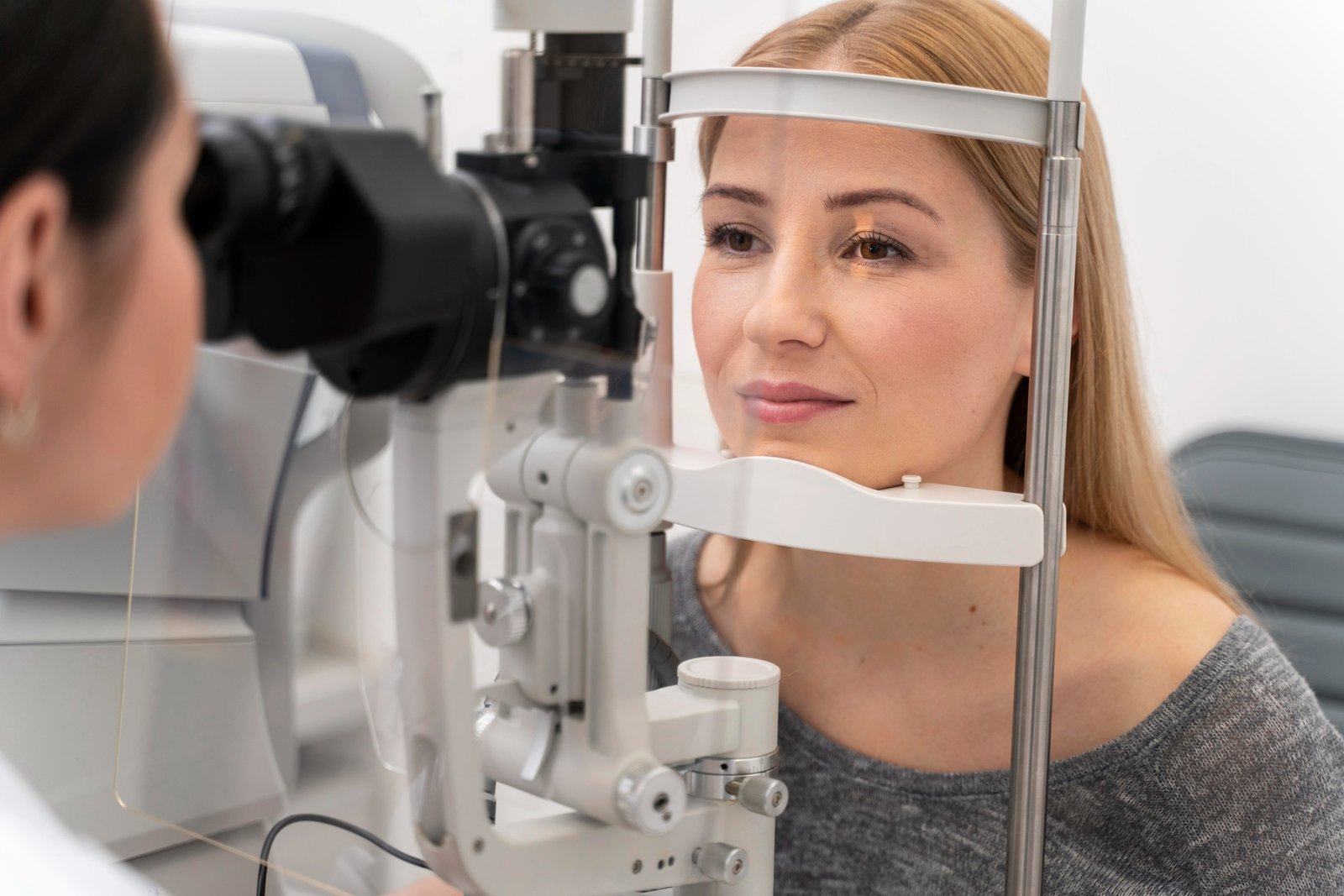Blog
Eye Care Advice

Your eyes are not just windows to the world but vital components of your overall health and well-being. From daily habits to professional advice, here’s a comprehensive guide to maintaining optimal eye health and preserving your vision for years to come.
1. Schedule Regular Eye Exams
Routine eye exams are crucial for detecting early signs of vision problems and eye diseases. Schedule comprehensive eye exams with an optometrist or ophthalmologist at least once every two years, or more frequently if you have existing vision issues or are over the age of 40.
2. Protect Your Eyes from UV Rays
Prolonged exposure to ultraviolet (UV) rays can increase the risk of cataracts, macular degeneration, and other eye conditions. Wear sunglasses that block 100% of UV rays whenever you’re outdoors, even on cloudy days or during winter months.
3. Practice Good Screen Habits
In today’s digital age, prolonged screen time can strain your eyes and lead to digital eye strain or computer vision syndrome. Follow the 20-20-20 rule: every 20 minutes, look at something 20 feet away for at least 20 seconds to reduce eye strain.
4. Maintain a Balanced Diet
A diet rich in antioxidants, vitamins, and omega-3 fatty acids can promote eye health. Include foods like leafy greens, fish high in omega-3 (such as salmon), citrus fruits, and nuts in your diet to support optimal vision and reduce the risk of age-related eye conditions.
5. Stay Hydrated
Proper hydration is essential for maintaining the moisture level in your eyes. Drink plenty of water throughout the day to prevent dry eyes and promote overall eye comfort.
6. Quit Smoking
Smoking increases the risk of developing age-related macular degeneration, cataracts, and optic nerve damage. If you smoke, quitting can significantly improve your eye health and reduce the risk of vision loss.
7. Protect Your Eyes at Work and Play
If your job involves hazardous materials or tasks, wear protective eyewear to prevent eye injuries. Similarly, when participating in sports or recreational activities, use appropriate eye protection to shield your eyes from potential injuries.
8. Know Your Family History
Many eye conditions, such as glaucoma and macular degeneration, have a genetic component. Knowing your family’s eye health history can help you understand your risk factors and take proactive steps to protect your vision.
9. Rest Your Eyes
Give your eyes regular breaks throughout the day, especially during periods of intense focus or screen use. Blink frequently to lubricate your eyes and reduce dryness, and consider using artificial tears if your eyes feel dry or irritated.
10. Seek Professional Advice
If you experience sudden changes in vision, eye pain, or other concerning symptoms, seek prompt medical attention from an eye care professional. Early diagnosis and treatment can often prevent or mitigate the progression of serious eye conditions.
Conclusion
Your eyes are irreplaceable, and caring for them should be a priority throughout your life. By incorporating these eye care tips into your daily routine and seeking regular professional guidance, you can safeguard your vision and enjoy optimal eye health for years to come. Remember, proactive eye care today ensures clearer, brighter tomorrows.

